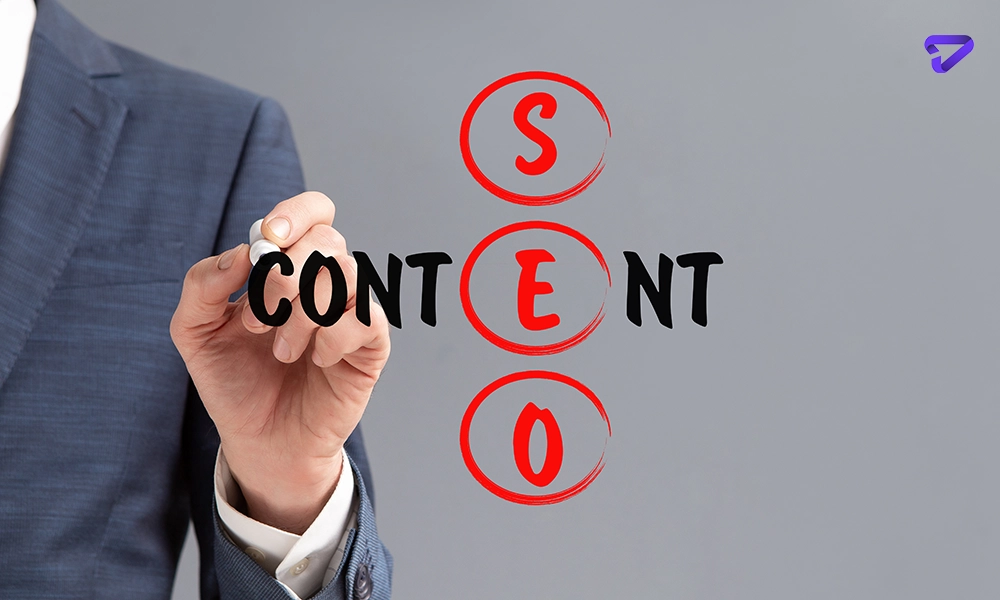
Unlocking Success: Integrating Content Marketing with SEO Strategies
Content Marketing with SEO Strategies is essential for businesses aiming to enhance their online visibility, attract targeted traffic, and achieve sustainable growth.
In the dynamic world of digital marketing, two terms often stand out:
Content Marketing and SEO (Search Engine Optimization).
These two elements are deeply intertwined, and understanding their connection is crucial for any successful online marketing strategy.
This article aims to explore the intricate relationship between content marketing and SEO, and how they can be integrated to maximize your online presence.
The importance of integrating SEO into your content marketing strategy cannot be overstated.
SEO makes your content visible to search engines, while content marketing ensures that the content is valuable and relevant to your audience.
When combined, they create a powerful synergy that can significantly boost your online visibility and engagement.
Understanding SEO and Content Marketing SEO
Search Engine Optimization, or SEO, is the practice of increasing the quantity and quality of traffic to your website through organic search engine results.
It involves optimizing your website and its content so that search engines can easily find, index, and rank it.
SEO is crucial because it:
- Increases visibility of your website on search engines.
- Drives organic, or non-paid, traffic to your site.
- Enhances user experience by helping create user-friendly websites.
- Builds credibility and trust with your audience.
As Google’s Andrey Lipattsev stated, “Content and links going into your site, are the two most important ranking factors followed by RankBrain.”
This quote emphasizes the importance of SEO in making your content visible and accessible to your audience.

Content Marketing
Content marketing, on the other hand, is a strategic marketing approach focused on creating and distributing valuable, relevant, and consistent content to attract and retain a clearly defined audience — and, ultimately, to drive profitable customer action.
Content marketing is important because it:
- Builds relationships and fosters trust with your audience.
- Positions your brand as an industry expert.
- Drives engagement and influences conversions.
- Provides value to your audience, not just pitches your products or services.
A case study by the Content Marketing Institute showed that 91% of B2B marketers use content marketing to reach customers.
This statistic underscores the significance of content marketing in today’s digital age.
The Connection
Now, you might be wondering, how SEO and content marketing fit together?
The answer is simple: SEO is all about making your website and content visible to search engines, while content marketing is about creating valuable and relevant content that will attract and retain your audience.
In other words, SEO lays the groundwork for your site to be found, while content marketing fills it with substance that keeps visitors coming back.
In conclusion, SEO and content marketing are two sides of the same coin.
They complement each other and work best when integrated into a cohesive digital marketing strategy.
The Role of SEO in Content Marketing
Search Engine Optimization (SEO) is a critical component of content marketing.
It ensures that the valuable content you create reaches the right audience at the right time. Here’s how:
Keyword Research
Keyword research is the foundation of SEO.
It involves identifying the words and phrases that people use in search engines.
These keywords can then be incorporated into your content to enhance its visibility on search engine results pages (SERPs).
The importance of keyword research in content creation is threefold:
Guides content topics: Keywords can provide insights into what your audience is interested in, guiding you in creating relevant content.
Improves content visibility: By incorporating the right keywords, your content can rank higher on SERPs, thereby increasing its visibility.
Drives targeted traffic: Keywords attract users who are interested in your content, leading to higher engagement and conversion rates.
Quality Content for SEO
Creating quality content is another crucial aspect of SEO.
Search engines, particularly Google, prioritize high-quality, relevant content in their rankings.
Quality content for SEO:
Engages readers: High-quality content is interesting, informative, and adds value to the reader.
Increases dwell time: If your content is engaging, visitors will spend more time on your site, which can positively impact your SEO rankings.
Boosts backlinks: Quality content is more likely to be shared and linked to, increasing your site’s authority and SEO rankings.
SEO in Content Distribution
SEO also plays a role in content distribution.
By optimizing your content for search engines, you increase its visibility, making it easier for your audience to find and engage with it.
SEO in content distribution involves:
Optimizing meta tags: Meta tags like title tags and meta descriptions can improve your content’s visibility on SERPs.
Using SEO-friendly URLs: URLs that include keywords and are easy to read can help improve your content’s SEO.
Leveraging social media: Sharing your content on social media can increase its visibility and drive more traffic to your site.
In conclusion, SEO plays a crucial role in content marketing.
It ensures that your content is visible, relevant, and engaging, ultimately driving more traffic to your site and increasing your chances of conversion.

The Role of Content Marketing in SEO
Content marketing is an integral part of effective SEO strategies.
It serves as the backbone of SEO, providing the substance that can be optimized for search engines.
Here’s a closer look at how content marketing contributes to SEO:
Content Creation for SEO
Content is the foundation of SEO.
Without it, there would be nothing to optimize for search engines.
The process of content creation for SEO involves:
Creating high-quality content: Search engines prioritize high-quality, relevant content.
Therefore, creating such content is crucial for SEO.
Using keywords naturally: Keywords are important for SEO, but they should be used naturally within your content.
Overuse of keywords, also known as keyword stuffing, can lead to penalties from search engines.
Updating content regularly: Search engines favor websites that regularly update their content.
Regular updates signal to search engines that your site is active and relevant.
Link Building
Link building is another important aspect of SEO that relies heavily on content marketing.
The process of link building involves:
Creating link-worthy content: The first step in link building is creating content that others want to link to.
This usually involves creating high-quality, valuable content.
Promoting your content: Once you’ve created link-worthy content, the next step is to promote it.
This can involve sharing it on social media, emailing it to your subscribers, or reaching out to influencers in your industry.
Building relationships: Link building is not just about creating and promoting content.
It’s also about building relationships with other website owners, bloggers, and influencers who might link to your content.
Content Marketing and User Experience
Content marketing also plays a role in improving the user experience on your site, which is a key factor in SEO.
Improving user experience involves:
Creating engaging content: Engaging content keeps visitors on your site longer, which can improve your SEO rankings.
Making your content easy to read: This involves using headings, subheadings, bullet points, and images to break up your content and make it easier to read.
Providing value: Ultimately, the best way to improve the user experience on your site is to provide value to your visitors.
This means creating content that is informative, helpful, and relevant to their needs.
In conclusion, content marketing plays a crucial role in SEO.
It involves creating high-quality, relevant content, building links, and improving the user experience on your site.
By integrating content marketing and SEO, you can create a powerful digital marketing strategy that drives traffic, engages your audience, and boosts conversions.

Integrating SEO and Content Marketing
Integrating SEO and content marketing can lead to a powerful digital marketing strategy.
Here’s how you can effectively integrate the two:
Keyword Research and Content Creation
As mentioned earlier, keyword research is a crucial part of SEO. It can also guide your content creation process.
By understanding what your audience is searching for, you can create content that meets their needs and improves your SEO.
Optimizing Content for SEO
Once you’ve created your content, the next step is to optimize it for search engines.
This involves using your keywords naturally throughout your content, optimizing your meta tags, and using SEO-friendly URLs.
Promoting Content
Promoting your content is a key part of content marketing that can also improve your SEO.
By sharing your content on social media, emailing it to your subscribers, and reaching out to influencers in your industry, you can increase its visibility and drive more traffic to your site.
Analyzing and Improving
Finally, integrating SEO and content marketing involves analyzing your results and making improvements.
This can involve using tools like Google Analytics to understand how your content is performing, identifying areas for improvement, and making necessary changes.
In conclusion, integrating SEO and content marketing can lead to a powerful digital marketing strategy.
By understanding your audience, creating high-quality content, optimizing it for search engines, promoting it, and making continuous improvements, you can drive more traffic to your site, engage your audience, and boost conversions.
Challenges in Combining SEO and Content Marketing
Integrating SEO and content marketing can significantly enhance your digital marketing strategy.
However, this integration is not without its challenges. Here are some common obstacles and tips to overcome them:
Common Challenges in Integrating SEO and Content Marketing
Understanding the audience: Knowing what your audience is searching for, their needs, and how your content can meet those needs is a significant challenge in integrating SEO and content marketing.
Creating high-quality content: Producing relevant, high-quality content requires time, effort, and a deep understanding of your industry and audience.
Keeping up with SEO changes: SEO is a dynamic field.
Staying updated with the latest changes and adapting your strategy accordingly can be challenging.
Promoting your content: After creating your content, promoting it to the right audience can be a daunting task.
Tips to Overcome These Challenges
Use SEO tools: SEO tools can help you understand your audience, identify relevant keywords, and stay updated with the latest SEO changes.
Create a content calendar: A content calendar can help you plan your content creation process, ensuring that you’re consistently producing high-quality, relevant content.
Promote your content: Utilize social media, email marketing, and influencer outreach to promote your content and reach the right audience.
Analyze and improve: Use tools like Google Analytics to analyze your content’s performance and make necessary improvements.

Future of SEO and Content Marketing
The digital landscape is continuously evolving, and so is the future of SEO and content marketing.
Here are some emerging trends and how you can adapt your content marketing strategy to these trends:
Emerging Trends in SEO and Content Marketing
Voice search: With the increasing use of voice assistants like Alexa and Siri, optimizing your content for voice search is becoming increasingly important.
Mobile-first indexing: Google now prioritizes the mobile version of your website, making it crucial to ensure your website is mobile-friendly.
Artificial intelligence: AI is playing an increasingly important role in SEO and content marketing, from creating content to analyzing its performance.
How to Adapt Your Content Marketing Strategy to These Trends
Optimize for voice search: This involves using long-tail keywords and creating content that answers specific questions.
Make your website mobile-friendly: Ensure your website is responsive, loads quickly, and is easy to navigate on mobile devices.
Leverage AI: Use AI tools to create and analyze your content, identify SEO opportunities, and improve your content marketing strategy.
Conclusion
In conclusion, the connection between SEO and content marketing is undeniable.
By integrating the two, you can create a powerful digital marketing strategy that drives traffic, engages your audience, and boosts conversions.
As the digital landscape continues to evolve, it’s important to stay ahead of the curve and adapt your strategy accordingly.
Thank you for reading, and we hope this post has provided you with valuable insights into the future of SEO and content marketing.








